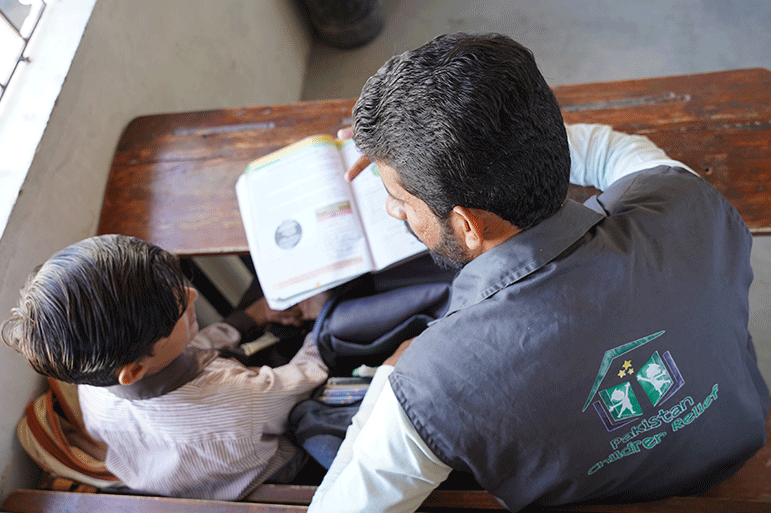Education is more than just a classroom experience, it’s a powerful tool to break cycles of poverty and neglect. For orphaned children, access to quality education can mean the difference between vulnerability and empowerment. These children face unique emotional, psychological, and socioeconomic challenges, often leaving them at the margins of society. But with the right support, education can open doors to opportunity, dignity, and hope. Understanding the Challenges Orphaned Children Face Emotional and Psychological Barriers The loss of parents leaves a lasting emotional impact. Orphaned children often struggle with grief, abandonment, anxiety, and depression. These feelings make it difficult to focus on education, creating a cycle where emotional pain limits academic success. Without emotional support, even the brightest child can lose confidence and direction. Socioeconomic and Basic Needs For many orphans, financial instability is a major hurdle. When basic needs like food, clothing, and shelter are uncertain, education becomes secondary. A hungry or insecure child cannot thrive in school. Lack of access to school supplies, uniforms, or transportation further widens the gap. Why Education Matters Building Cognitive and Social Skills Education fuels curiosity, problem-solving, and critical thinking. It gives orphaned children the tools to analyze their world and build a better future. Beyond academics, schools are safe spaces for children to make friends, build social skills, and develop emotional intelligence. Breaking the Cycle of Poverty Access to education improves long-term employment opportunities, boosts confidence, and reduces vulnerability to exploitation. Children who complete education are more likely to escape poverty and contribute positively to their communities. Successful Orphan Education Programs Local Initiatives Making a Difference Community-led orphan care programs in Pakistan are proving that targeted education can change lives. Many local initiatives combine formal schooling with life skills training, ensuring children not only learn but also grow into empowered young adults. Global Best Practices International organizations like UNICEF have shown how inclusive, culturally sensitive education programs can transform outcomes for orphaned children worldwide. Storytelling, mentorship, and vocational training are just some of the innovative approaches making an impact. The Role of Nonprofits and Government Funding and Resources Nonprofit organizations for children and government initiatives are essential in bridging educational gaps. Through scholarships, school supplies, and learning centers, they remove financial barriers and give orphaned children a fair chance. Community Collaboration Collaboration between nonprofits, schools, and local communities creates a strong orphan support system. When communities get involved, children receive not only education but also mentorship and emotional care an essential foundation for lasting change. Policy and Legal Protection Strong policies ensure orphaned children have legal rights to quality education and protection from neglect. Advocacy helps build this safety net, ensuring no child is left behind. Bridging the Gap in Education Access Removing Barriers to Enrollment Many orphaned children struggle with documentation, stigma, or lack of transportation. Addressing these issues with flexible enrollment, school transport support, and community awareness can dramatically increase attendance and retention. Innovative Learning Solutions Technology and alternative education models are breaking down barriers for children in remote areas. Mobile classrooms, digital learning platforms, and blended education ensure that children can learn wherever they are. Inclusive Learning Environments Inclusive classrooms foster belonging and confidence. Training teachers in empathy and cultural sensitivity creates safe spaces where orphaned children can express themselves and thrive. Empowerment Through Skills and Vocational Training Life Skills for Independence Education for orphaned children must go beyond textbooks. Teaching practical skills like budgeting, cooking, communication, and time management helps them lead independent lives with confidence. Partnerships with Local Businesses By collaborating with businesses, schools can offer hands-on vocational training and internships. This approach gives orphaned youth marketable skills and job opportunities, preparing them for real-world challenges. Fostering Entrepreneurship Entrepreneurship training empowers youth to start small businesses, promoting self-reliance. Whether through crafts, digital skills, or services, these programs turn dreams into sustainable livelihoods. Building Community and Emotional Support Strengthening Support Networks Communities play a key role in supporting orphaned children. Emotional care, peer groups, and mentorship can provide stability and encouragement, helping children focus on their growth and education. Caregivers and Mentorship Strong caregiver relationships and structured mentorship programs help children navigate academic and emotional challenges. Mentors serve as role models, guiding youth toward success and resilience. Future Perspectives: Creating Sustainable Change Innovative Educational Models Project-based learning, blended education, and experiential teaching methods can better engage orphaned children and make education more relevant to their lives. Global Partnerships Collaborating with international organizations and nonprofits creates sustainable support systems, pooling expertise and resources to address educational challenges holistically. Embracing Technology E-learning tools and digital education platforms make learning accessible and engaging, especially for children in underserved areas. Conclusion: A Call to Action Education for orphaned children is more than just a basic right—it’s a pathway to breaking poverty and building hope. By addressing emotional, financial, and systemic barriers, we can create lasting change. International organizations like UNICEF and offer inspiring models, but local action is just as critical. Pakistan Children Relief (PAKCR) is committed to providing education, care, and support for orphaned children across Pakistan. By supporting their orphan care programs, sponsoring a child, or contributing to education initiatives, you can help transform lives. Together, we can ensure every orphaned child has the chance to learn, grow, and lead a brighter tomorrow. FAQs What are the main challenges faced by orphaned children in accessing education? Orphaned children often encounter emotional and psychological trauma, socioeconomic barriers, and a lack of access to basic needs, which can hinder their ability to enroll and succeed in educational programs. How can educational programs specifically benefit orphaned children? Educational programs can provide orphaned children with cognitive skills, social and emotional development, and long-term opportunities for personal and professional growth, ultimately empowering them to break free from cycles of poverty. What role do nonprofits play in supporting the education of orphaned children? Nonprofits often provide essential funding, resources, and community support, partnering with local initiatives to create tailored educational programs that address the unique needs of orphaned


